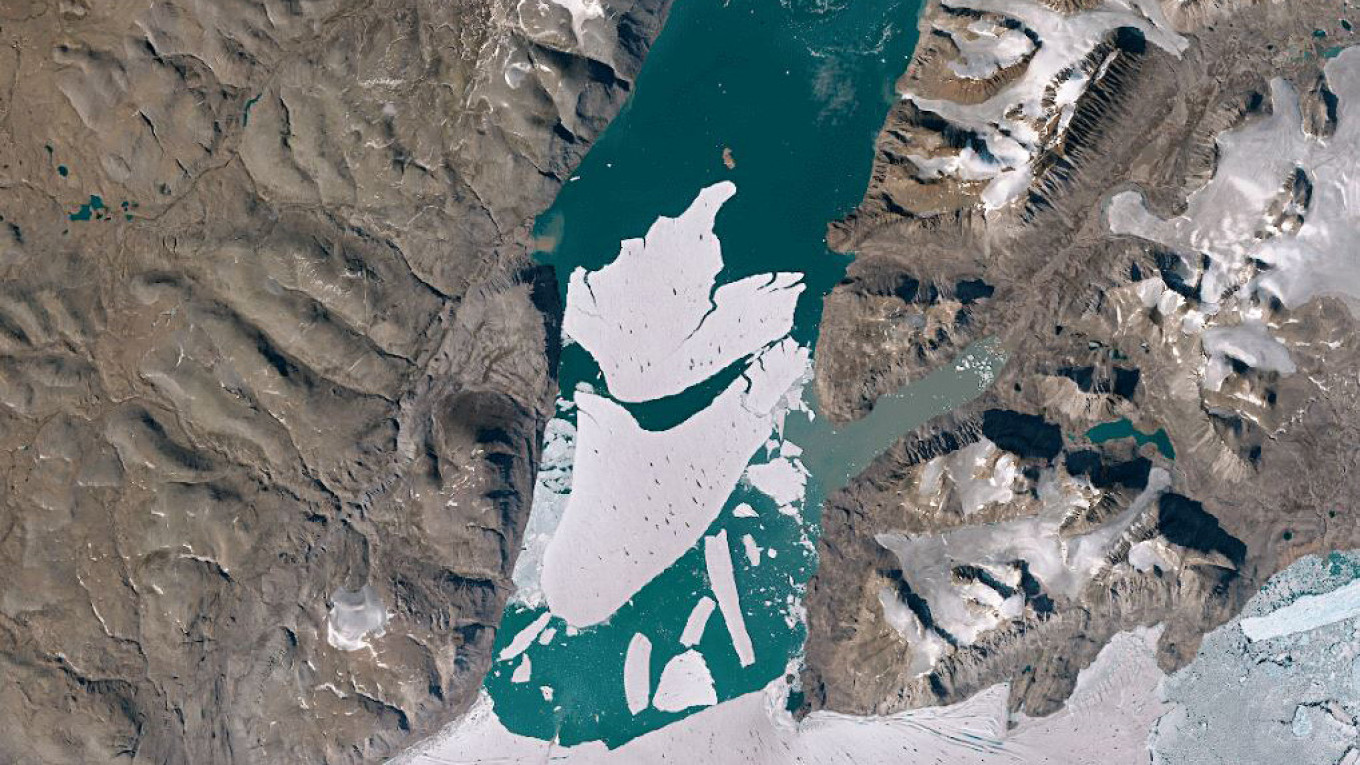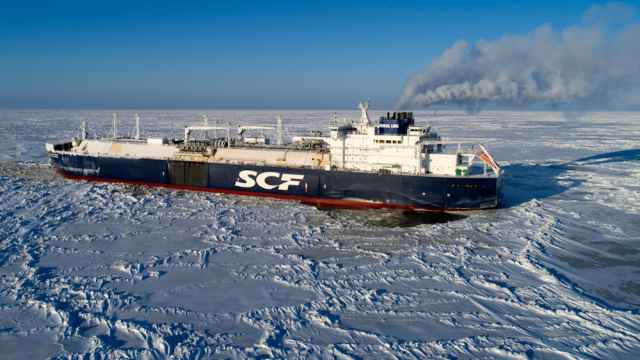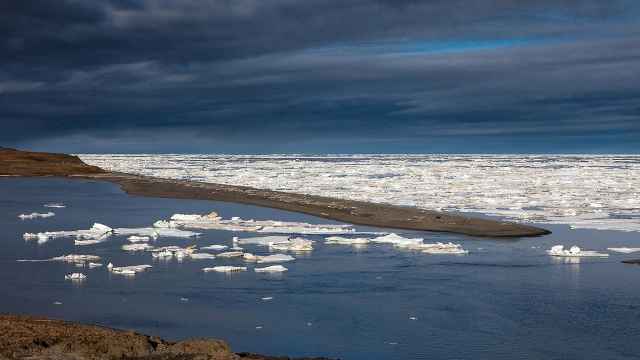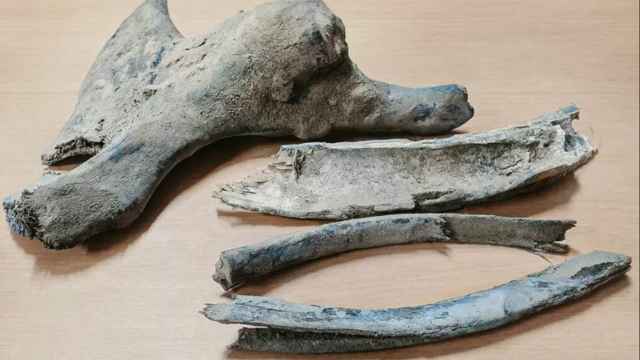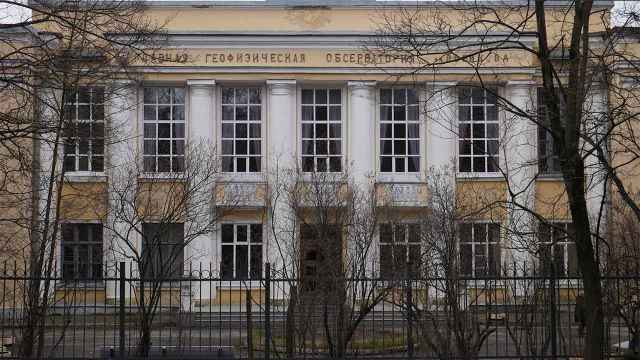A few degrees of warming in the Arctic could trigger an abrupt thaw of the permafrost that makes up two-thirds of Russia’s landmass and a subsequent climate change feedback loop, according to a new study based on ancient warming episodes.
Three of the region’s largest warming events in the past 27,000 years coincided with rapidly thawing and collapsing permafrost, said the study published Friday in the Science Advances journal. Its findings are based on an analysis of 8-meter sediment cores retrieved from the bottom of the Arctic Ocean off of Eastern Siberia by a team of Russian, Swedish and U.S. scientists in 2014.
“This demonstrates that Arctic warming by only a few degrees may suffice to abruptly activate large-scale permafrost thawing,” the study's authors wrote.
The warming works like “a sensitive trigger for a threshold-like permafrost climate change feedback,” they added.
Scientists have long argued that climate change could trigger a feedback loop in which melting permafrost releases greenhouse gases like carbon and methane into the atmosphere, further accelerating global warming and permafrost melt.
“Our study indeed suggests that abrupt permafrost thawing represents a tipping point in the climate system,” lead author Jannik Martens told the Inside Climate News website.
When that tipping point will arrive is still an open question, he added.
An Intergovernmental Panel on Climate Change (IPCC) report last year said Russia’s permafrost is expected to thaw at an accelerating rate between now and 2100.
The IPCC report predicts that 70% of surface-level permafrost could thaw by 2100 if greenhouse gas emissions continue to rise, shifting the world’s “permafrost border” increasingly northward.
More than 65% of Russia’s territory is located in the planet’s frozen cryosphere. The country is the world’s fourth-largest emitter of greenhouse gases.
The latest study’s co-author Örjan Gustafsson stressed that greenhouse gas emissions from both thawing permafrost and man-made sources will inevitably lead to “dangerous thresholds.”
“The only way to limit permafrost-related greenhouse gas releases is to mitigate climate warming by lowering anthropogenic greenhouse gas emissions,” he told Scientific American.
A Message from The Moscow Times:
Dear readers,
We are facing unprecedented challenges. Russia's Prosecutor General's Office has designated The Moscow Times as an "undesirable" organization, criminalizing our work and putting our staff at risk of prosecution. This follows our earlier unjust labeling as a "foreign agent."
These actions are direct attempts to silence independent journalism in Russia. The authorities claim our work "discredits the decisions of the Russian leadership." We see things differently: we strive to provide accurate, unbiased reporting on Russia.
We, the journalists of The Moscow Times, refuse to be silenced. But to continue our work, we need your help.
Your support, no matter how small, makes a world of difference. If you can, please support us monthly starting from just $2. It's quick to set up, and every contribution makes a significant impact.
By supporting The Moscow Times, you're defending open, independent journalism in the face of repression. Thank you for standing with us.
Remind me later.


